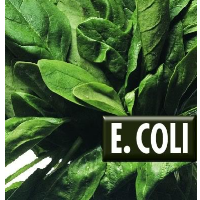Environment Compromised by Questionable Food Safety Push

An effort to keep deadly contaminants out of leafy green vegetables in California after an outbreak of E.coli in 2006 has instead contributed to environmental degradation while providing questionable safety advantages, according to a report published in Frontiers in Ecology and the Environment.
Three people died and more than 200 people were sickened seven years ago when they ate bagged Dole Baby Spinach traced to a farm in Salinas Valley. Shortly after the outbreak, a joint study by the U.S. Food and Drug Administration (FDA) and the California Department of Health Services (CDHS) pointed a finger at field contamination from wild pigs, surface waterways exposed to feces from cattle and wildlife, and irrigation wells used to grow produce for ready-to-eat packaging.
California led the way in formulating common-sense rules for keeping animal contaminants away from produce that inspired similar regulations across the country. Farmers cleared the land of native vegetation, built fences and poisoned certain areas to discourage wildlife from crapping up the land. Fences were installed across 75% of the 20 wildlife corridors examined by researchers.
It worked, sort of. At least, the wildlife disappeared. In the process, pollution increased as pesticides and fertilizers had a clearer path to water sources, soil erosion buffers disappeared, and the land became more vulnerable to flooding and the future ravages of global warming. In the ensuing five years, 13.3% of the riverside and wetland habitat was eliminated or degraded, leaving the world safe for bagged lettuce.
Or did it?
E. coli, or Escherichia coli, is a bacterium often found in the intestines and colon of warm-blooded animals. There are more than 700 mostly harmless variations, but some can be highly toxic.
According to the study, which was conducted by the Nature Conservancy and the Monterey Institute of International Studies, the impact of these measures on the incidence of E.coli is still not known. More than half the 15 subsequent outbreaks of E.coli have occurred in California.
-Ken Broder
To Learn More:
Produce Industry’s Food Safety Push Takes Toll on the Environment (by Erin Brodwin, Scientific American)
Food-Safety Push in California Hurts Wildlife—and Doesn’t Make Food Safer (by Claire Thompson, Grist)
FDA Finalizes Report on 2006 Spinach Outbreak (U.S. Food and Drug Administration)
Farm Practices for Food Safety: an Emerging Threat to Floodplain and Riparian Ecosystems (by Sasha Gennet, Jeanette Howard, Jeff Langholz, Kathryn Andrews, Mark D Reynolds and Scott A Morrison, Frontiers in Ecology and the Environment)
- Top Stories
- Controversies
- Where is the Money Going?
- California and the Nation
- Appointments and Resignations
- Unusual News
- Latest News
- California Forbids U.S. Immigration Agents from Pretending to be Police
- California Lawmakers Urged to Strip “Self-Dealing” Tax Board of Its Duties
- Big Oil’s Grip on California
- Santa Cruz Police See Homeland Security Betrayal in Use of Gang Roundup as Cover for Immigration Raid
- Oil Companies Face Deadline to Stop Polluting California Groundwater





